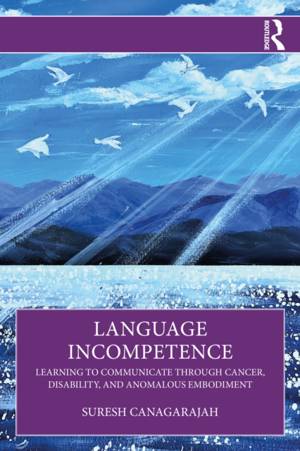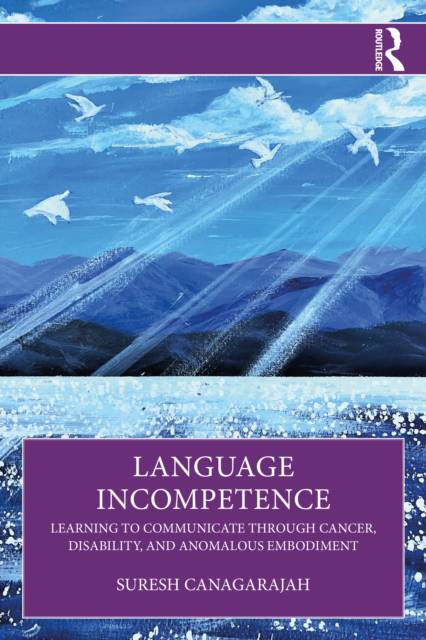
- Retrait gratuit dans votre magasin Club
- 7.000.000 titres dans notre catalogue
- Payer en toute sécurité
- Toujours un magasin près de chez vous
- Retrait gratuit dans votre magasin Club
- 7.000.000 titres dans notre catalogue
- Payer en toute sécurité
- Toujours un magasin près de chez vous
Language Incompetence
Learning to Communicate through Cancer, Disability, and Anomalous Embodiment
Suresh CanagarajahDescription
This book is framed as a memoir of the author's journey through a cancer diagnosis and resulting impairments, as he continued his teaching and research activities during and after medical procedures. The narrative weaves together theoretical debates, textual analyses, and ethnographic data from communicative practices to redefine language competence.
The book demonstrates:
- the generative and resistant value of human vulnerability
- the importance of vulnerability in motivating engagement with social networks and material ecologies for productive thinking, communication, and community
- the role of relational ethics in social and communicative life
- a decolonizing orientation to disability studies and language competence.
While language competence was traditionally defined as mentally internalized grammatical knowledge for individual mastery of communication, this book demonstrates the need for distributed, ethical, and embodied practice.
The book is intended for graduate students and researchers in language and literacy studies. It would interest scholars outside these disciplines to understand what language studies can offer to address the role of disabilities, impairments, and debilities in embodied communication and thinking. In the context of the global pandemic, compounded by environmental catastrophes and structural injustices which disproportionately affect marginalized communities, the book helps readers treat human vulnerability as the starting point for ethical social relations, strategic communication, and transformative education.
Spécifications
Parties prenantes
- Auteur(s) :
- Editeur:
Contenu
- Nombre de pages :
- 220
- Langue:
- Anglais
Caractéristiques
- EAN:
- 9781032078915
- Date de parution :
- 09-05-22
- Format:
- Livre broché
- Format numérique:
- Trade paperback (VS)
- Dimensions :
- 156 mm x 234 mm
- Poids :
- 340 g







